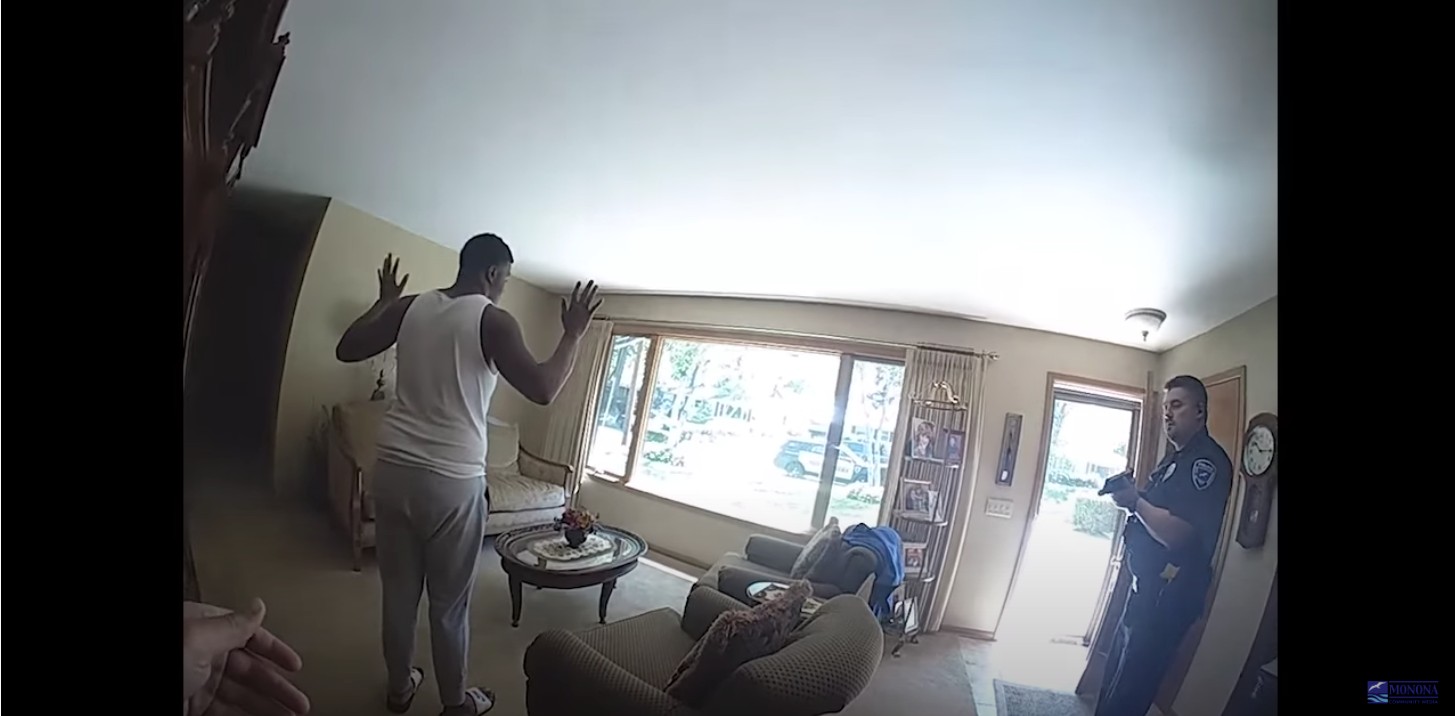
This month’s national protest movement has risen to confront police forces that violate laws, escalate violence and resist accountability. The recent actions of Monona police officers, and the public response from city leadership, illustrates the urgent need for the Black Lives Matter protests and police reforms even in small cities like my hometown of Monona.
On June 2, the Monona Police Department apologized for bursting into a home and detaining Mr. Keonte Furdge, a 2016 graduate of Monona Grove High School, at gunpoint. In light of the evidence released by the city, including edited police body camera footage from the incident, it is clear that the officers’ actions were illegal and unconstitutional.
The incident began when a Mononan called the police and reported that although she thought her neighbor’s house had been vacant, there was someone at the home. It was an African-American man that she did not believe should be there, whom she had seen on the front porch.
Monona Police Chief Walter Ostrenga published a press release stating that although the caller reported the person was African-American, that was never told to the officers. Based solely on vague suspicion from a neighbor, and apparently without even a description of the suspicious person, the officers “believ[ed] this was a possible burglary into the residence.”
The police chief also stated that the officers’ actions were “following protocol.” The city had better hope not. If the City of Monona is training its officers to respond to a vague call from a nosy neighbor by bursting into homes with guns drawn, Mononans should be terrified. Terrified of invasions into their own homes, and terrified of the legal liability that the city could face for training its police to violate citizens’ rights.
These officers entered a home without a warrant, something the Constitution grants special protection against. In order to do so, the police must have probable cause that a crime was committed and cause to believe an emergency necessitates entering the home.
This call was not even a report of a crime. It was a speculative call from a neighbor, who reported no particular reason that they would know if the person at the house was the owner’s family member, guest, realtor, painter or anyone else. The police did not appear to do any additional investigation before entering the home.
The officers’ decision to enter the home was unconstitutional, and further, their actions within the home were reckless and dangerous. As seen in the video footage later released by the city, for four minutes, one officer opened the front door and stood silently in the doorway, pointing his loaded gun into the home. The officers then entered, called out and pointed their guns at a man who had every right to be there. As Mr. Furdge said with calm resignation as he was handcuffed, the officers were called “because I’m a black man.”
Again, Mononans should hope that these actions do not represent Monona Police Department protocol. What is more likely is that the police chief’s claim of “protocol” was an attempt to deflect blame and paper over these officers’ illegal actions as something more like an unfortunate misunderstanding.
This type of excuse has become disturbingly typical of government responses to police violence. Police departments have refused to be held accountable when officers violate their duty and use excessive force. And without this accountability, reforms like restricting use of force are useless.
We already have laws that prevent police from bursting into our homes without cause. It is enshrined in our Bill of Rights. But the promises of our laws only protect us if those laws are enforced. When officers violate that promise, and their chief of police defends that violation, the constitution won’t protect us.
Such excuses are precisely why it is of no value to respond to protests over police violence by arguing that such illegal or violent action is committed by a “few bad apples.” If the actions of a few are shielded by the department, the entire department is rotten. This problem will not be solved by a racial sensitivity course.
Monona should join the movement to defund or radically reduce the police budget and deploy those resources more productively. The Monona police department’s budget is over $2.5 million, over 35 percent of the entire city’s budget. That money paid for several armed police to point guns at Mr. Furdge in his home because of a call from a neighbor. Likewise, that money pays for armed police officers to write traffic tickets, respond to shoplifters, patrol the homeless and arrest for drug possession. Sending police officers for these tasks and many others unnecessarily inserts guns and violence into these situations. If we want to reduce police violence, we need to radically reduce the role and budget of police departments and reroute those resources to other public services.
Alex Vlisides is an attorney and Monona native. This opinion piece reflects the views of its author and not necessarily those of Madison365, its staff, board of directors or funders.



